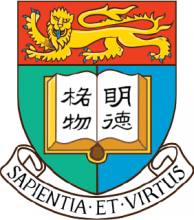I feel relentlessly optimistic about the future of Hong Kong. So, do I just not understand the culture? Am I looking at it through rose-tinted spectacles?
After all, many Hong Kongers are less bullish about the role that this remarkable territory can play in the modern, globalised world. They lament the fact that our economy is not more diverse, that our main assets are people and capacity for hard work rather than machinery or industry, and they worry that the pace of change in entrepreneurship and innovation in mainland China and in other parts of the world threatens to leave us behind.
But let’s look at the facts. Hong Kong has low taxation, high employment, a permissive regulatory framework and uncensored communications. It also has a creative “can-do” spirit, an enviable track record of adaptability and resilience and excellent supplies of talented, educated, often bilingual or trilingual youngsters. So it seems to me that we have all the ingredients for success in a future in which innovation will be key.
The Hong Kong Science and Technology Park recently celebrated its 15th anniversary with many examples of brilliant creativity. Hong Kong also has Cyberport – a cluster focused on technology and digital content. Above all, we have a university system that annually produces vast numbers of graduates brimming with ideas, enthusiasm and energy. We simply need to provide the environment for them to flourish. Of course, this will require expansion of current infrastructure and more funding, public and private, but Hong Kong has the insight to realise that it will need to adapt in order to compete.
There are examples in Asian culture that Hong Kong can collaborate with and learn from. Just across the border, the extraordinary development of an agricultural area of the Pearl River delta into the modern city of Shenzhen within 30 years shows what is possible with investment and imagination. I recently visited Tuspark, the science park associated with Tsinghua University in Beijing. It is truly spectacular, with more than 400 companies, 25,000 employees and an annual turnover of 60 billion RMB (£6.3 billion).
Singapore is another Asian culture in which innovation and entrepreneurship are cherished and nurtured. The National University of Singapore is leading the way with its promotion of experiential entrepreneurship education via its Entrepreneurship Centre, its overseas colleges and the regeneration of an adjacent set of buildings into a hub for start-ups.
Asia abounds with examples of the creativity of its peoples. Sometimes this is brought about through necessity – which is, after all, the mother of invention (I am fond of an internet image of an Indian man entering the sea wearing a lifebelt made from old Coca-Cola bottles). Asian ingenuity is also abundantly apparent in its marketing. In the Philippines, sales of an already well-known laundry detergent were dramatically enhanced by rebranding a chain of launderettes and dry cleaners as fashion boutiques, promoting the idea that old clothes can be made to look like new. In India, 3D glasses were distributed to potential buyers of a new luxury car, enabling them to view it in 3D in a brochure and on a website. In China, a tablet computer that can interpret handwritten Chinese characters was promoted to elderly customers – known to prefer handwriting – by persuading a major business newspaper to print an entire news page in handwritten characters.
Then there are much larger-scale innovations. Examples include the unprecedented success of China’s e-purchase platforms for sales of a wide variety of goods, the mushrooming of social networks, e-commerce and online games. So don’t tell me that Asian cultures are not innovative. They are already showing some spectacular successes, and they can lead the world.
Universities have a critical role to play in instilling the additional ingredients of the culture we need. For instance, we must embrace innovation in our own activities. In teaching and learning, recent years have seen the growing use of digital techniques, such as flipped classrooms and online learning. And in research, there is a global push by funders for their investment to yield greater social and economic impact. These I-words – innovation and impact, as well as interdisciplinarity and internationalisation – form the backbone of the University of Hong Kong’s strategic plan for our next 10 years.
As well as leading by example, encouraging innovations in the professional pursuits of our staff, we also aim to allow our students to flourish by testing their ideas, doing experiments and learning from their failures. This is the major cultural challenge, as I see it, for Asian students: to accept that it is OK to fail.
Our students are high achievers, driven by examination success and lofty career aspirations. It is all very well for entrepreneurs who have subsequently succeeded to talk about all their past failures and what they learned from them. But young people are striving to achieve tangible returns in the short to medium term in order to justify and reward the effort and expenditure that they, their family and their friends have put into their education. It is much harder for them to accept that taking risks and embracing failures are acceptable or sensible: we need to support them in doing so.
Peter Mathieson is president of the University of Hong Kong. He will be chairing a session on culture, creativity and innovation at the Times Higher Education Asia Universities Summit at the Hong Kong University of Science and Technology on 19-21 June.
POSTSCRIPT:
Print headline: Eyes on the future
Register to continue
Why register?
- Registration is free and only takes a moment
- Once registered, you can read 3 articles a month
- Sign up for our newsletter
Subscribe
Or subscribe for unlimited access to:
- Unlimited access to news, views, insights & reviews
- Digital editions
- Digital access to THE’s university and college rankings analysis
Already registered or a current subscriber? Login






